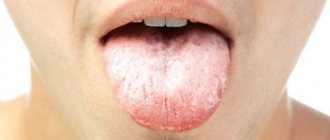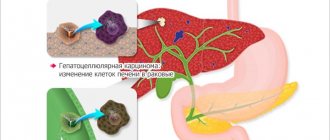Every person has experienced diarrhea. This unpleasant phenomenon can disrupt even the most serious plans and ruin your mood. Sometimes the reasons for the development of diarrhea are obvious. In other situations, it is not so easy to understand what caused the intestinal upset. Is diarrhea possible due to nervousness? What are its symptoms? How to get rid of an unpleasant condition quickly and without harm to the body?
How does your emotional state affect you?
Not everyone understands how the internal psycho-emotional state affects the functioning of the gastrointestinal tract. Nervous diarrhea is actually very common. Some people become upset before a serious interview, after a showdown, or because of passing exams.
Whatever causes emotional stress, the entire human body suffers from nerves. In fact, the nervous system is involved in controlling many processes. Although this area is not fully understood, what information is available helps explain the development of this condition.
The control of many functions depends on the work of the parasympathetic and sympathetic systems. When parasympathetic predominates, a person’s intestinal motility increases. As a result, the contraction and relaxation of the smooth muscles of the organ occurs incorrectly and diarrhea may develop.
Diarrhea from stress most often occurs in cases where, in addition to stress, a person has eaten the following foods:
- fried foods;
- fat;
- coffee;
- alcohol;
- sweets;
- hot spices.
In addition to the increased frequency of bowel movements and changes in the consistency of stool, changes also occur in a person’s well-being. Abdominal pain appears, nausea and other symptoms may appear.
Possible complications and prevention
Diarrhea from severe stress is dangerous if you experience the following symptoms:
- temperature rises;
- nausea, vomiting occurs;
- diarrhea lasts more than 7 days.
Symptoms indicate a complication in the body - dehydration. The situation is dangerous; the patient cannot absorb vitamins and minerals. If you are pregnant or have symptoms in children, immediately contact an ambulance.
The body loses the necessary fluid, and a sharp weight loss occurs. If the necessary measures are not taken, death is possible.
To avoid such situations, prevention of nervous diarrhea is necessary:
- Avoid conflicts.
- Eat properly.
- Drink more than 2-2.5 liters of purified water per day.
- Wash fruits, vegetables, hands before eating.
- Sleep 8 hours a day.
- Do exercises in the morning.
- Walk at least 2 hours a day in the fresh air.
To prevent nervous diarrhea, the patient needs rest and isolation from psychological pressure. Adhering to the recommendations will help restore the patient’s emotional state and eliminate the cause of the disorder.
The article has been approved
by the editors
Nervous diarrhea can become a chronic disease, disturbing when any emotional experience manifests itself. Frequent discharge contributes to dehydration, which is accompanied by dizziness, pale skin, thirst, and loss of strength.
Together with feces, nutrients, vitamins, and amino acids necessary for normal growth and development are washed out of the body. Dehydration can lead to death. Constant discharge provokes exhaustion and weight loss. Failure to digest food leads to anorexia.
Mechanism of development of diarrhea
Nervous diarrhea develops as follows:
- stress stimulates the activation of nerve centers;
- special hormones are released into the blood;
- this causes an increase in pressure;
- the pulse quickens and the need for oxygen increases;
- the rhythm of contractions and relaxations is lost;
- the brain and heart take the bulk of their nutrition from the blood;
- Due to oxygen starvation, a spasm occurs in the intestines, which causes diarrhea.
We recommend: What soups can you eat if you develop diarrhea?
Knowing what can cause neurogenic diarrhea, you should figure out what to do in such situations and how to help yourself.
The connection between the gastrointestinal tract and the nervous system
Emotional anxiety affects the sympathetic and parasympathetic innervation of the intestines, causing diarrhea from stress. There is a violation of contractions and relaxations of muscles in the intestines. Alcohol, fatty, spicy foods aggravate the situation.
Emotional diarrhea is accompanied by pain and an overcrowded intestinal condition. Such phenomena are accompanied by patients who are prone to hereditary diseases of the psychosomatic system.
The relationship between the gastrointestinal tract and the nervous system:
- When the patient becomes nervous, the nerve center is activated.
- Blood pressure increases.
- The stress hormone is released in large quantities.
- There is a strong blood flow to the heart, muscles, and brain.
- An irregular heartbeat occurs and the pulse quickens.
- Manifestation of lack of oxygen.
- Lack of oxygen leads to intestinal spasms.
Stress leads to disruption of the gastrointestinal tract, causing diarrhea syndrome.
Provoking factors
Nervous diarrhea often develops in those whose parents suffered from this disease. The frequency of development of diarrhea from nervous experiences is also influenced by gender. More often, this condition appears in women, especially during periods of premenstrual syndrome.
If a person suffers from certain mental disorders, neurogenic diarrhea is not uncommon. The following diseases contribute to the development of the condition:
- psychoses;
- neuroses;
- panic attacks;
- manic-depressive states;
- depressive states.
Those who suffer from a constant feeling of fear and do not know how to control their emotions, often experiencing severe overexcitement, are more likely to experience diarrhea.
Symptoms of neurogenic diarrhea
Because the symptoms and causes of diarrhea are similar, nerve diarrhea and irritable bowel syndrome are often lumped together. Symptoms may include:
- false urge to defecate;
- pain in the navel area;
- discomfort in the intestines;
- increased gas formation;
- bloating;
- numbness of the limbs;
- headache.
Not only a doctor can determine that diarrhea is neurogenic in nature. When the stress disappears, no symptoms of diarrhea remain. Still, to make sure that the body has not suffered from any infections or viruses, it is better to visit a doctor and get tested.
If a pregnant woman has diarrhea of a neurogenic nature, you should not get lost in assumptions, but it is better to immediately seek help from a gynecologist.
Consequences
Nerve diarrhea can pose a health risk to a person, especially if it lasts for several days. Frequent bowel movements throughout the day can lead to dehydration. In addition, during this illness a person loses a large percentage of nutrients and microelements (they leave the body along with fluid), which can cause significant harm to his well-being. Risk categories include young children and the elderly, as dehydration can be fatal.
Foods that cause diarrhea
Treatment of neurogenic diarrhea
Treatment for diarrhea caused by emotional experiences can be a change of environment, normalization of the internal state, restoration of harmony with the outside world. Such diarrhea in a child should be treated carefully, since in some children the condition can take a chronic form, for example, due to a difficult atmosphere at school or in a group. Some parents use folk remedies, which have a milder effect than the use of chemicals.
We recommend: What are the dangers of diarrhea and fever - causes and treatment
The table below shows groups of drugs, describes what effect they have on the body and what drugs are included in this category.
| Group of drugs | Impact | Medicines | Recommendations for use |
| Antidepressants | The drugs act directly on the cause of nervous diarrhea, relieve tension and anxiety. They have a relaxing effect on the intestinal muscles, which slows down peristalsis and reduces the frequency of bowel movements. | "Azafen" "Amitriptyline" "Imizin" "Fluoroacyzine" | It is advisable to take it at night. How much to drink – individual characteristics and manufacturer’s recommendations should be taken into account. |
| Remedies to stop diarrhea | Used only for acute diarrhea. They slow down the movement of feces through the intestines and stop peristalsis. Contraindicated if you are prone to constipation. | "Loperamide" "Imodium" "Levomycetin" | Accepted once. The effect of the drug begins literally 30–40 minutes after administration. |
| Antispasmodics | Relaxes the intestinal muscles, relieves spasms, and reduces the frequency of bowel movements. The use of such drugs helps to anesthetize the process. | "Drotaverine" "Spazmalgon" "No-Shpa" "Papaverine" "Duspatalin" | The dosage should be determined based on the information in the instructions. The patient's age and cardiovascular condition should be taken into account. |
In addition to the use of medications, it is important to follow a diet. Although neurogenic diarrhea is not directly related to diet, it can contribute to a speedy recovery.
Video: Nervous system damage due to stomach disease
Causes
- Stress causes disruption of breathing and heart rhythm, as a result of which exhaled oxygen first enters the stomach, and when leaving the organ, it irritates the vomiting center.
- The release of adrenaline against the background of a neurotic syndrome causes hardening of the muscles, including the muscles of the stomach. The body's response to hypertension is vomiting.
- The somatic reaction to increased nervous overload is to increase intestinal peristalsis and activate the gag reflex.
Dietary recommendations
During the recovery period after neurogenic diarrhea, it is important to adjust the diet. This will help the intestinal mucosa recover faster and improve the processes of digestion and absorption of food.
You should completely avoid alcoholic drinks, soda and coffee. Sweets, especially cakes with cream, should be excluded from the diet. The following products should be used with caution:
- cabbage;
- grape;
- dairy products;
- smoked meats;
- conservation;
- baking;
- fresh fruits and vegetables.
If you follow doctors' recommendations and be selective in your diet, you can recover faster. It is important to maintain emotional balance and this will help prevent nervous diarrhea.
Features of the pathology
An upset stomach due to nervousness leads to disruption of the large intestine due to the active production of adrenaline, cortisol, and norepinephrine. The released hormones do not allow the fluid entering the body to be absorbed by the intestinal mucosa. This leads to impaired peristalsis and the appearance of unpleasant sensations in the abdominal area.
Irritable bowel syndrome caused by stressful situations has distinctive features:
- passing loose stools exclusively during the daytime;
- absence of elevated body temperature;
- there is no blood or pieces of undigested food in the stool;
- absence of heartburn, flatulence, belching;
- leukocyte counts in the blood are normal.
Under the influence of emotional stress, a pathology occurs in a child and an adult, characterized by the desire to empty the intestines at a stressful moment. The release of hormones provokes vomiting, sweating, pallor or redness of the skin, rapid pulse, as well as an excited state and aggressive behavior. Physiological and mental changes in the body cause prolonged attacks. If the “bear disease” is not treated in a timely manner, diarrhea can last from a couple of weeks to months.











